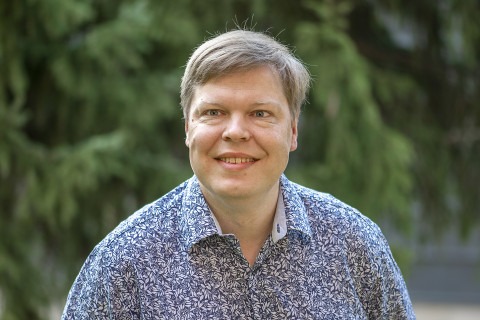The forest bioeconomy will become more diverse and pluralistic in the near future
"The scientific field of the forest bioeconomy motivates me, because it is inherently multidisciplinary and it combines the global perspective on wicked problems with a local search for solutions.”
According to Professor Teppo Hujala, the forest bioeconomy is a diverse field, and anticipatory research opens up an opportunity for reasoned foresight through better understanding of the evolving change factors affecting forests and their use.
“In the early years of the 2000s, I worked at the University of Helsinki in teaching and pedagogical e-learning duties. My doctoral thesis focused on landowner-driven forest planning. Thereafter I have worked as a researcher of participatory forest planning, forest policy and forest-related services at the Finnish Forest Research Institute and at the Natural Resources Institute Finland.”
The past four years he has served as Professor of Forest Bioeconomy Foresight at the University of Eastern Finland’s School of Forest Sciences in Joensuu.
“This four-year term has been an excellent crash course preparing me for the new, permanent professorship. Saastamoinen Foundation will continue to fund my professorship up until the end of 2021.”
“At the moment I’m in particular interested in studying business collaborations and co-creation practices as well as catalyzing and hampering factors of innovation adoption. Combining foresight and innovation procedures will in the future be a central success factor in forest-based business development. I’m fascinated by integrating futures consciousness and anticipation skills into the learning of forest science students and professional lifelong learners.”
“My own project portfolio is rather diverse; I’m currently studying, for example, new forestry service models, futures of small-diameter wood, views of young forest owners, and cultural transformation towards a sustainable circular bioeconomy.”
The forest bioeconomy will become more diverse and pluralistic in the near future.
“Actors will find cross-sectoral partnerships, and they will establish an operating culture characterised by experimental development. In consequence, they will uncover new ways to productize and servitize forest-related tangible and intangible values. Sustainability and responsibility issues will get more attention, citizen science solutions will take effectiveness leaps, and forest-related conflict resolution endeavours will discover new means for participation and agency.”
For further information, please contact: Professor Teppo Hujala, tel. 050 336 7457, teppo.hujala (a) uef.fi
***
Teppo Hujala
Teppo Hujala appointed as Professor of Forest Bioeconomy, in particular Forest Bioeconomy Foresight, at the University of Eastern Finland from 1 September 2020 onwards
Born in 1976 in Suomenniemi (Mikkeli), Finland
Doctor of Science (Agriculture and Forestry), 2009, University of Helsinki, major subject: forest resource science and technology
Most important roles:
- Professor of Forest Bioeconomy Foresight at the University of Eastern Finland in 2017-2020
- Hujala has held assistant, advisory and researcher roles at the Finnish Forest Research Institute, the University of Helsinki and the Natural Resources Institute Finland
- Hujala has held the title of docent in interactive forest planning at the University of Helsinki since 2012
Editor-in-chief (part-time) of Metsätieteen aikakauskirja, published by the Finnish Society of Forest Science, since 2019



